FOR THE LOVE OF HAMILTON
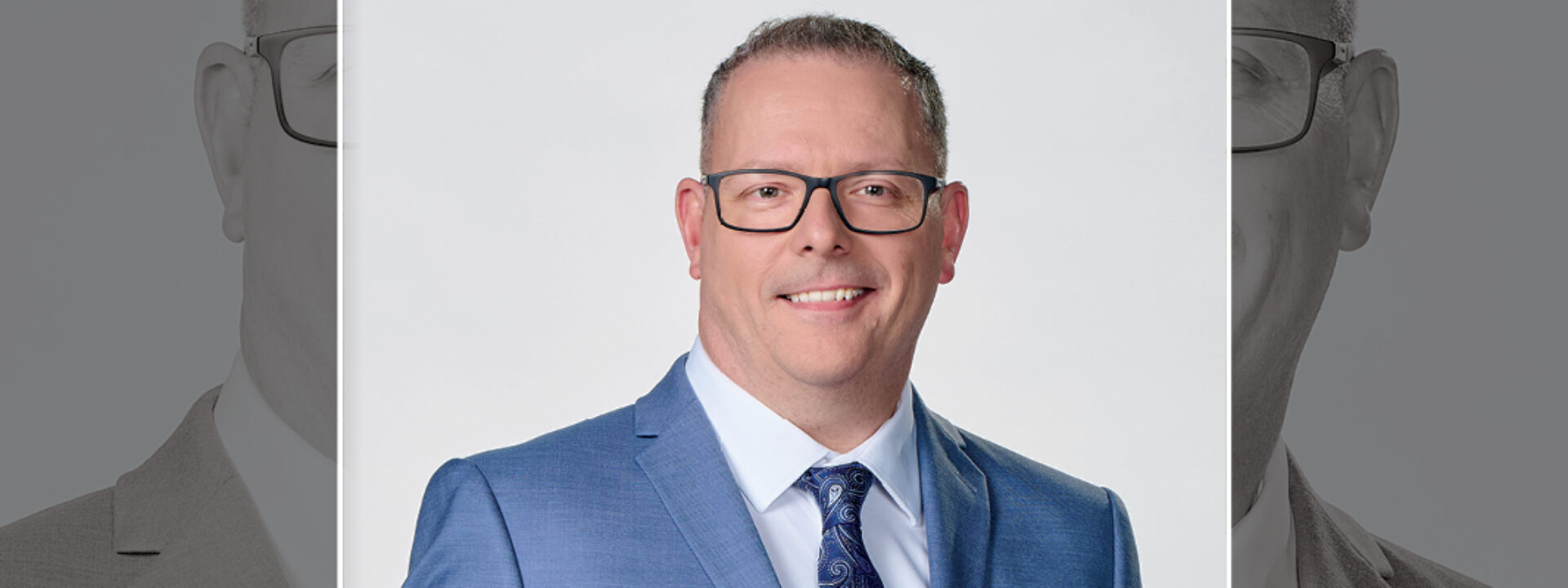
This regular feature highlights people from all walks of life who have embraced Hamilton as their new home.
RICK ZAMPERIN was born in Toronto and grew up in Malton and Brampton. His dream from an early age was to work in sports as a play-by-play announcer. His studied at Fanshawe College’s broadcast journalism program before embarking on a 30-year career in radio, starting in Chatham, Fort McMurray and Brantford, before arriving at Hamilton’s 900 CHML in 2000. He realized his dream of becoming a play-by-play announcer when he called Hamilton Tiger-Cats games from 2007-2014 on CHML radio, where the award-winning journalist also worked as a news anchor, reporter, producer, and morning show host. In 2025, Rick joined CHCH News as the co-anchor of Morning Live and also returned to the broadcast booth with the Ticats on the Ticats Audio Network. He also hosts CHCH’s Newsmakers podcast. Rick lives on the central Mountain with his wife and has two children in their early 20s.
What did you dream of doing when you were a kid?
Honest to God, this would be the early ’80s, watching Hockey Night in Canada, the Maple Leafs probably getting shellacked by the Montreal Canadiens on a Saturday night. We always used to go to my grandparents on Saturdays, and we'd watch the Leafs. And we'd watch Maple Leaf Wrestling from Copps Coliseum back in the day. And I thought I really wanted to be the guy telling the story. So I wanted to be the Billy Red Lions or the Bob Cole, you know, explaining what was happening on the ice or the field or whatever the case is. And when I played road hockey, I would be the goalie more often than not, and I would commentate as my friends were playing. So from 8 to 10-ish, I knew this is what I wanted to do.
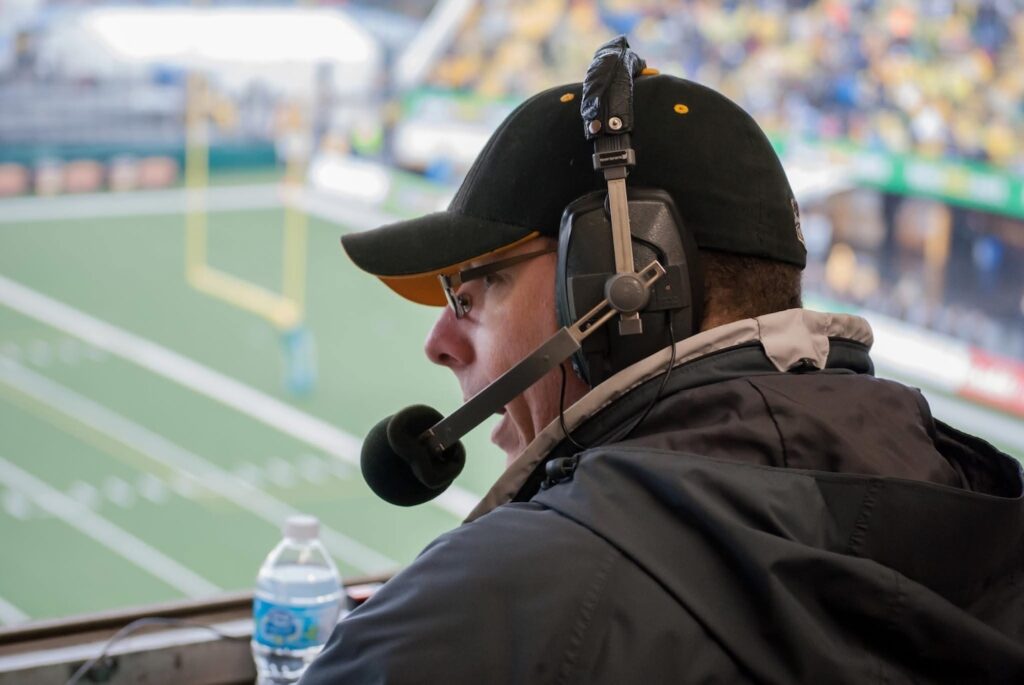
Tell us about your early career.
I graduated Fanshawe in 1994 and, of course, this is the height of the recession in ’90s. So I sent out manila envelopes with resumés and cassette tape auditions across the country, from Newfoundland to B.C., and didn't get a whiff until April of 1995. I went to CKSY in Chatham, Ontario. It’s a little station, but has obviously a loyal following. And so I thought that would be a great start. So I started as a weekend news anchor, so 6 a.m. to 12 p.m. news on the hour and a weekday reporter. So it was a part time job. And so I would anchor the weekends and then go to Wallaceburg city council or Chatham city council or cover a fire erupted. Cutting my teeth in a small town was great, because you could make mistakes, and it wouldn't be the end of the world. Whereas in a major market, if you made a mistake, it was a big mistake.
So from Chatham, I was there for about just over a year. In the summer of ’96, I got a full time job in Fort McMurray, Alberta. I got to do a whole bunch of different things, because it was the news director and it was me, and that's it. So I'm anchoring news in the afternoon, and I'm covering everything under the sun as a reporter. I'm working the audio board for the first time. I'm hosting the Fort McMurray Oil Barons junior hockey team pre-game show and the post-game show. It was a lot of fun. The winters were a little harsh, but the summers were nice, but it's just part of being in a small community in northern Alberta.
I was there for two years and 10 months. So in the summer of 1999 we came back home, my wife and I. I met her in Chatham. She was working as a waitress, and we met on a blind date, and the rest is history. When it was time to come home, I took the first thing that came up, Welland as their morning news anchor at CIXL radio station. I was there for a couple of months and then something came up in Brantford, at CKPC, which is no longer with us, sadly, but had an illustrious history. I was doing weeknight news. I was doing weekend news. I was doing reporting in the community, covering some sporting events, too. I was there just over a year but then got cut from the roster as the most junior person.
In November of 2000 I stepped into CHML. I interviewed with (news and program director) Paul Tipple, and we had a two-and-a-half hour conversation while my pregnant wife is in the lobby having to pee like a racehorse. I started there as a traffic reporter. Paul instantly liked my sound and after a little bit of doing this traffic stuff, he said would you like to do some news stuff? And the rest is kind of history from there.
What was it like to join CHML?
CHML was an iconic station. You know, when I started there, Bob Hooper was still there. He was reading news in the morning. Bob Bratina was hosting the morning show. Paul obviously, being there for many years, was news director. Bill Sturrup had been there for decades. Roy Green, who I worked closely with for a long, long time, all these names that you hear about, and then you step into the newsroom and into the building and think, wow, I’ve got to not only collaborate with these guys, but compete with them as well, because I'm trying to climb the ladder too. And learning from them in the same sense. So it was an awesome experience to pull a little bit of something from each one of those individuals.
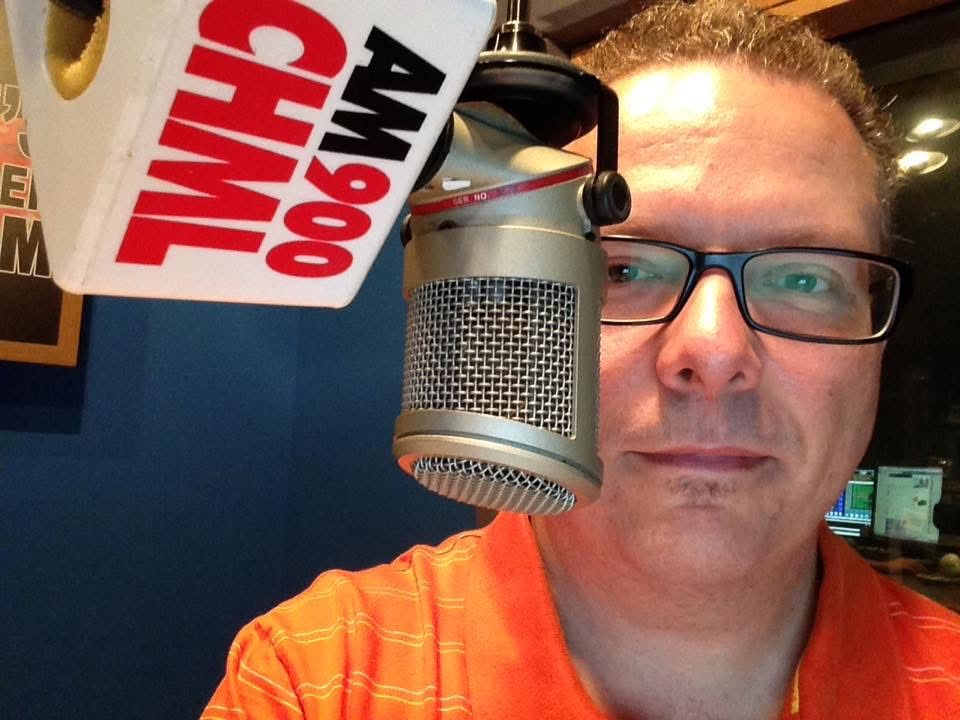
When you came to Hamilton, did you have any preconceived notions about the city?
So this was 2000, so I think most people come to Hamilton when they haven't been in the community, thinking what they've heard about it. Here's a greasy, grimy, gritty town, and you're probably not going to be there very long, because you're going to want to go to Toronto. And I just kind of came in with eyes wide open, thinking, I just want to do what I love to do. And I instantly fell in love with the city, because it's not, I mean, there is some grease and grime to it, and some grittiness, obviously, but there's a lot of awesome stuff about this city, whether it's waterfalls, the trails, the people, most importantly, that make this city really cool. So I instantly fell in love. My wife loves it here. This is the best place we've ever been.
You realized your play-by-play dream with the Hamilton Tiger-Cats. What was that like?
I still remember my first game at old Canad Inns Stadium in Winnipeg. It was an exhibition game. The Ticats won, 35-32.I was on cloud nine. I stood the whole time. And John Salavantis, my colour analyst, was probably thinking, is he going to sit down already? But he stood the whole time, too. And it was kind of funny. We had a discussion after the game, and I just remember him asking, ‘Do you plan to sit down?’ I think he was more comfortable sitting down and just having all his notes in front of him. And I just thought, yeah, there's no problem in that. I can still be very excited sitting.
How did you learn to call a game?
It was, to be honest, it was self-taught. So every time I would watch, not every time, but more often than not, I would watch hockey or football or baseball, and I would just kind of hear and pay attention to how they would describe things, you know, not necessarily just their famous calls, whether it's a home run or a touchdown, but you know, how are they setting up the play? How do they describe that out or how did the goal materialize? So it was just listening to all these legendary voices, men and women, who were describing, you know, what was happening. And I kind of just ingested that, and kind of developed my own kind of style.
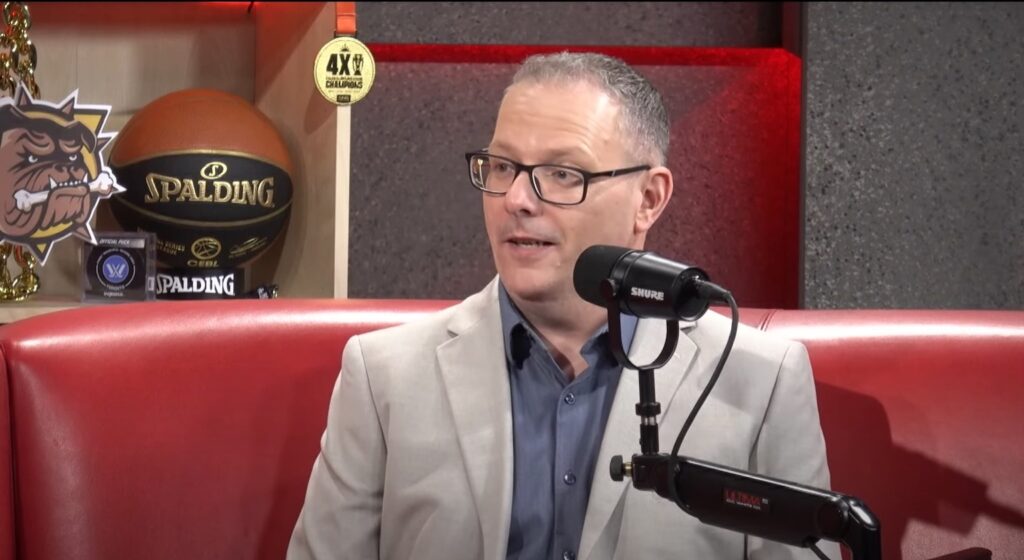
You did play-by-play on CHML from 2007 to 2014 but now you’re the voice of the Ticats on the Ticats Audio Network. How does it feel to be back?
Dream come true, 2.0. When I got the call in the spring, it really came out of left field. I was surprised, but very excited, because I knew right away that this is what I wanted to do again. I was over the moon, excited that they wanted me back. There wasn't much negotiating, because they could probably offer me $0 and I would do it, but they are paying me. So that's good.
Can you take us through the experience of learning that the iconic 900 CHML was being shut down last August?
So it's funny because I got hired Nov. 29, 2000, which is my dad's birthday. CHML closed on my mom's birthday, Aug. 14, 2024. We had had a meeting, an all-call Teams meeting, where the hierarchy kind of put all the cards on the table, saying we were in tough financial shape. So the seed was planted that some tough decisions are going to be made. So it was a Wednesday morning. Paul Tipple is in the newsroom. I'm hosting Good Morning Hamilton, and it's about 8:15 or so, and Paul sends me a text. I look at my phone while I'm hosting the show, and he says our manager, who was never in the building, is here, and so is another lady that he doesn’t recognize. And so the antenna goes up, thinking, OK, this is probably an HR individual. And so we figured it's our turn, the axe is falling. I'm still hosting. I still have 45 minutes to go. The wheels are kind of spinning, but at no point during that last 45 minutes did I even think of saying, this might be my last show. Never did we ever think that the company would close the station. We thought maybe a handful of people might lose their jobs.
My show ended at 9 and at 9:30, I get a text from our manager asking to meet. So I walked into the meeting, and there's the manager and HR individual and envelopes on the desk, and I knew right there that this is it, this is D-day for me and potentially everyone else. And 30 seconds into the meeting, it's: ‘Rick, not only are you losing your position, but we're closing the station today, effective immediately.’ And you could hear a pin drop.
It was a very sad day. And, you know, the way the last broadcast audio on the station was not to my liking for a station with that kind of heritage. I thought it would have gone out with more of a ‘Thank you, Hamilton, thanks for your support over the years.’ But that didn't happen. Ninety-six years of history and heritage and impact in the community, and I still drive by the building from time to time, and it's, it's almost that repeated gut punch, thinking what was and what still could have been, and the hole that it's left in the community.
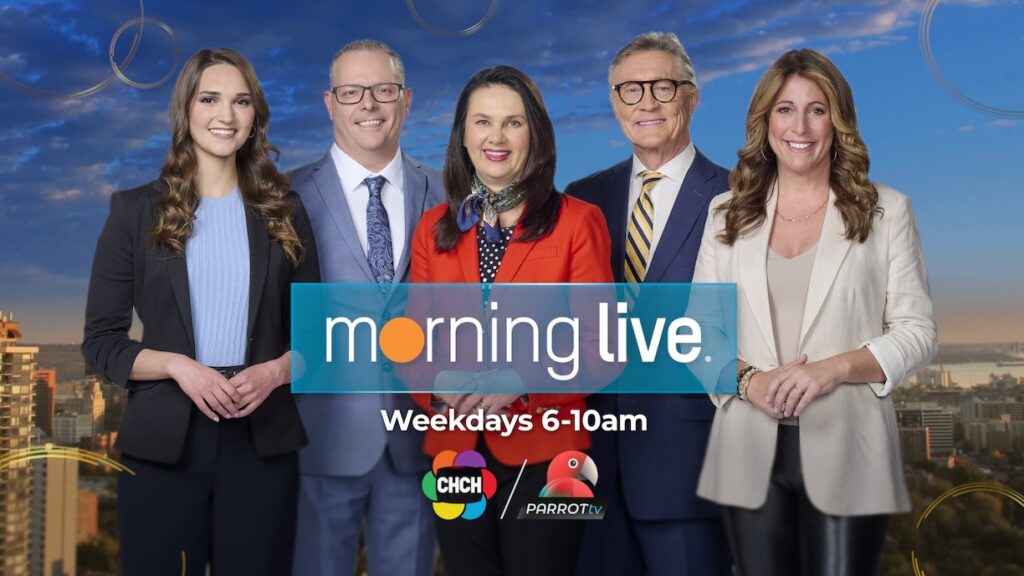
How did the job at CHCH come up?
(Sportscaster) Bubba O’Neil sent me a text probably a week before the job posting went up, saying that (former CHCH Morning Live co-anchor)Tim (Bolen) was leaving. Bubba said he thought I’d be awesome for the role. And I didn't need a nanosecond to think about it. And I thought, absolutely. I mean, it's in Hamilton first and foremost. That was hugely important. It's news, again, important. There's good sports content in there, which I'm very excited and happy about. And it's a new challenge because, yes, it's still media, but I haven’t done TV. So I submitted my resumé, and a really crappy audition, I'm sure, from the basement of my home on my YouTube setup. But they liked what they saw. They knew all the sweat equity I put into this community. And I know there was a tremendous amount of people who actually went for the job, because it's a great, high-profile gig, working with (co-anchor) Annette Hamm is, you know, amazing. She’s a legend at the station, and Brian (Wood) and Emily (Vukovic) and Simone (Gavros) and everyone at the Morning Live show are so great. So I jumped at the chance.
What's the transition from radio to TV been like?
I really love it. I knew I would like it. I didn't know I'd like it this much. It took me a good, I'd say, two weeks to kind of get the format of TV under my belt. The biggest thing that I had to overcome was being cognizant of what I'm doing in front of the screen. Because, in radio, you can sit however you want. You can literally wear your pajamas, although I never did that. But on TV everyone's watching, all eyes are on you. So not only do you have to act or you have to look like a person with integrity, who's professional and who's dressed accordingly, someone that the viewer can trust, you actually have to deliver that with what you say as well. So I think it's the best of both worlds in terms of the background that I have in radio, but the challenges that TV instantly brought, and I've happily, I think hit it out of the park. At least, that's what they tell me.
My lane, so to speak, is sports. I write news from time to time, but Annette (Hamm) writes some stories, and then we have a lineup editor who comes in really early in the morning and kind of lines everything up and writes stories. We rewrite and tweak in our own words. But my lane is sports. So everything you see and hear in the sportscast is what I've put together.
The other component is what we call Feel Good Time. So I search social media far and wide for some cool videos. People send in their videos as well. It's really fun. And then the other component is the CHCH Newsmakers podcast, which I've taken over recently. I'm hosting that twice a week. There's a lot of research that goes into that. But that's been a lot of fun too, because even though it's a visual medium, because you're interviewing the person on camera, it kind of goes back to my radio days of being just inquisitive and curious and asking some interesting questions.
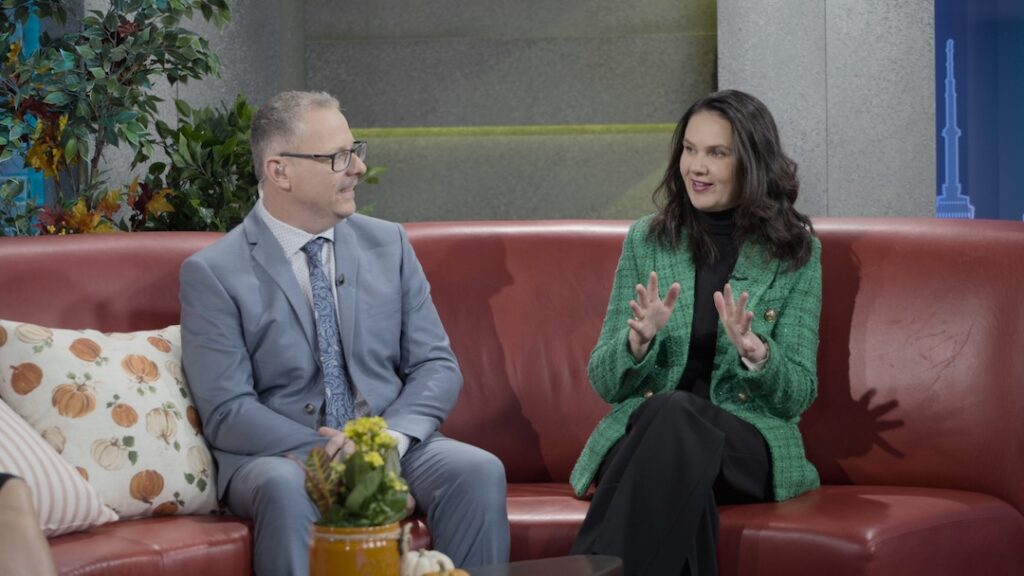
Your job requires early mornings, but you’re used to that.
Yeah, I've been in media for 30 years, and most of those years it has been early mornings. So getting up at 3 a.m. or 3:30 a.m. With TV, it's up at 2:30. The drive to work is just a wee bit longer. I get to work at 3:15. I’d rather be early than be late and that gives me a little bit of head Start to make a nice cup of coffee, look at what happened overnight, and then start writing sports. We’re live from 6 to 9 a.m. Then I look at the next day’s show and book any guests for upcoming shows.
What's been the best thing about your new job?
I would say that I'm still connected to the community, and going out in the community and having those conversations about what's happening in Hamilton, having my finger on the pulse of what's happening in the community, and then being able to relay that to people who are watching.
And we had a tremendous family at CHML and it was certainly top of mind for me: how am I going to fit in at this new place? And Annette gave me a huge hug on day one, and I was like, OK, this is good. Everyone has been so welcoming, and has taught me a lot of things in terms the formatics of TV and how they do things behind the scenes.
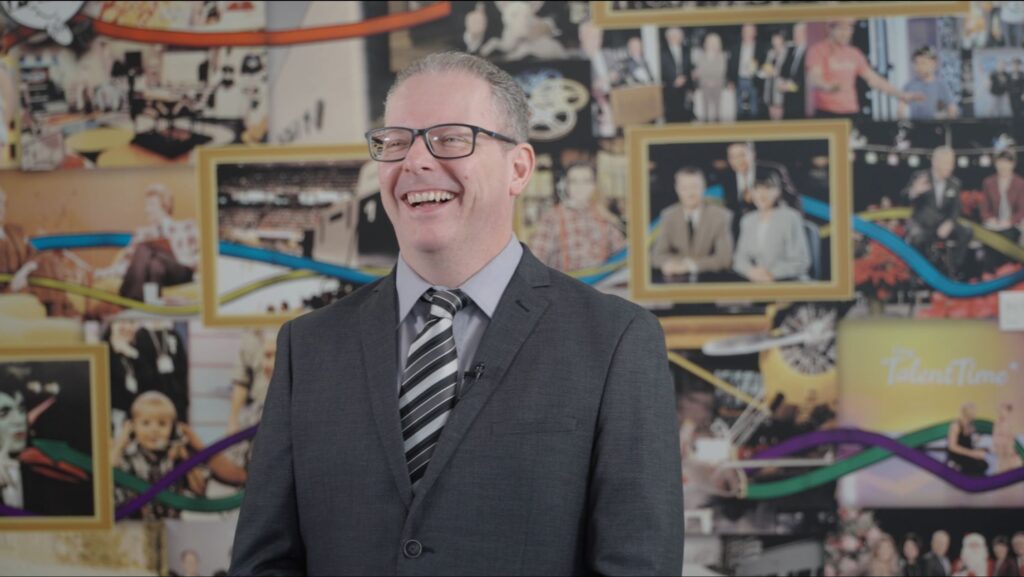
What's been the most challenging thing?
I think you could clearly see it on day one, when I started a little too proper, too stiff. I was worried about screwing up the moment. And I think after that first day, and I got a lot of feedback from people, primarily family, saying, ‘Oh, you're a little stiff.’ And I totally agreed. And so since the first week, I’ve loosened up. It's not the end of the world if you do make a mistake. The show goes on. So getting over that mental hurdle of, yes, you're on camera, but just be yourself. That was the best advice that I got.
What are some of the most memorable stories you've worked on through your career?
I would say there's been a couple. Roy Green and I had a chance to go to New York City on the one year anniversary of 9/11 and we did some awesome work in terms of lining up guests. I remember having two cell phones making sure everyone was where they were supposed to be. I was the producer of Roy’s show back at that time, and I remember he and I took a cab to Ground Zero. It was just a vast chasm of space, and you just think, wow, I realized what happened at that site, and all the people who lost their lives, and all the photos of missing loved ones on the fence beside the church that was right beside World Trade Center. And it was unbelievable.
The other one would be hosting the Fifth Quarter for all those years on CHML, because I took so much pride in not only, being kind of that psychologist to Ticat fans in good times and bad and there was a lot of bad times, certainly when I hosted. It was just talking to Hamilton, people that I really found fascinating. It was raw, it was emotional. At times, you're trying to be entertaining but informative. I had a blast hosting that show, so much so that when CHML closed, there were so many fans that messaged me, saying, ‘Are you keeping the Fifth Quarter alive?’ So I launched it on YouTube and did it for the rest of the season last year. I had no idea so many people were going to subscribe to the channel.
The digital age has made us a lot more portable, and social media has lent to that in terms of posting stuff immediately that a vast amount of people can see at the same time. So it's gone from zero to 100 really, really fast. But you know, it does have its drawbacks, too, in terms of the credibility standpoint. Because anybody can post anything, but who are these people? And where are they coming from, and what biases do they have? Trained journalists are dedicated to journalistic principles.
The media landscape has changed so much, too. There's mega corporations owning many stations, and then when the budget doesn't make sense, they swing the axe, and a lot of good people end up on the chopping block. As we all know, stories aren't being told because we don't have enough people to tell them.
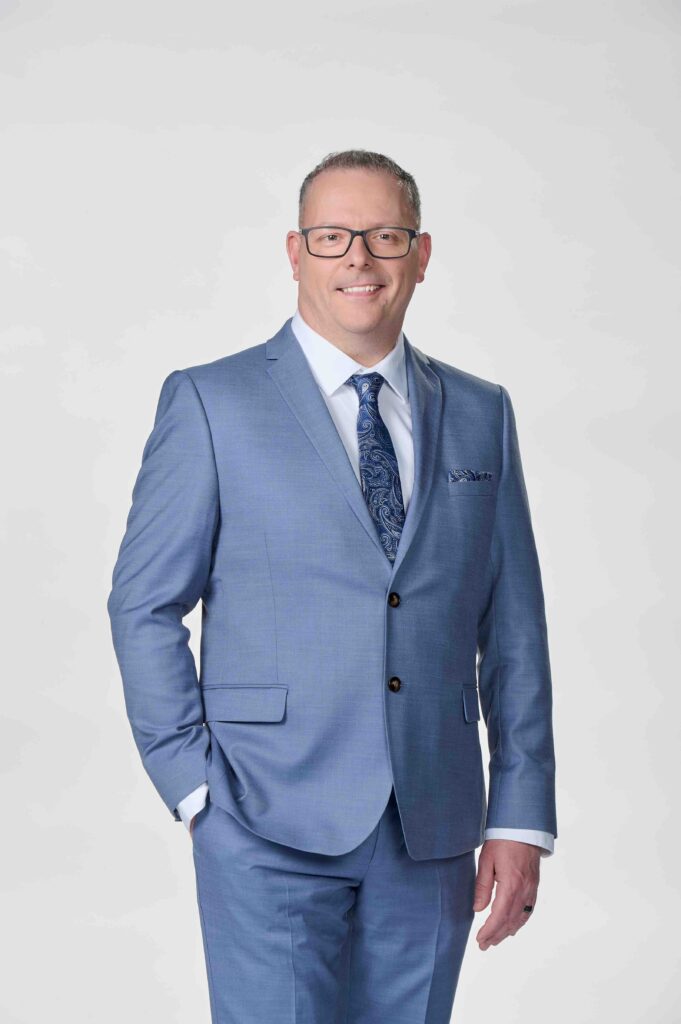
Photography
What do you think are the top three qualities a good journalist should have?
You have to be a truth seeker. Not only do you want to tell stories, but you want to tell stories that are obviously factual, but that have an impact in the community. So whether it's an election or a garbage collection strike or whatever the case is, if it's affecting a lot of people you want to be able to seek the facts, and relay those facts in a very objective way to the community. And I think that's first and foremost. I get back to AI and social media and there's a lot of misinformation out there. So I think the biggest, biggest quality is being that truth seeker, being curious to tell these stories that no one else is telling, in terms of someone achieving something great, or a community doing something awesome for a great cause, or whatever the case is. So I think being curious is kind of a good quality to have, too, and just being, you know, someone who likes to seek justice.
Who inspires you?
A lot of people inspire me. I get inspired by strangers, to be honest, who do incredible things, or just the simplest things, like holding a door open for someone or, you know, saying thank you when they you let them in the lane. My children inspire me for sure. You know, they've grown up and I just think back to when they were small kids and so dependent on my wife and I, and now they're able to do whatever they want to do. The world is in front of them. Let's see what they can do.
What do you love about your central Mountain neighbourhood?
It's quiet. It’s all about family. We have awesome neighbours. Everyone's kind of looking out for each other, and that's probably more important now than ever before with the world that we live in. We fell in love with our home, a 1950s bungalow. And it's probably because we moved so much during my early radio days. We moved like nine times. So as soon as we got in there, we thought, we're going to be here for, hopefully, a long while. We have no plans to move.
How would you describe Hamilton to people from other places?
The word loyal comes to mind. If you're in Hamilton, you're loyal to city sports teams, the history of the community, from the foundation of the steel industry to the new age kind of health, research, education sector that we have going. When you start living here, you just become, you know, this person that is going to defend Hamilton to the end of time. And then I think you just fall in love with all the things that this city has.
What’s your greatest hope for this city?
If I can be a little self-serving, I would say can we have a Grey Cup championship again, please? Because it's been too long. I remember broadcasting the Grey Cup in 2013. It was the 100th Grey Cup and the Cats had made it for the first time since 1999. They ended up losing, obviously. But the fan base that rallied behind that team really gave me a firsthand perspective of how crazy in love this community is with that franchise. And so we had a chance in 2014 and 2019 and 2021, but it just didn't happen all those four times. So I would love for it to happen, because sports, maybe like unlike anything else, brings communities together.
What is your favourite artistic or cultural experience in Hamilton?
Supercrawl because you get the best of everything. It's free, awesome music, art installations, everything under the sun, in terms of what this city's potential is in terms of arts and culture and bringing people together.
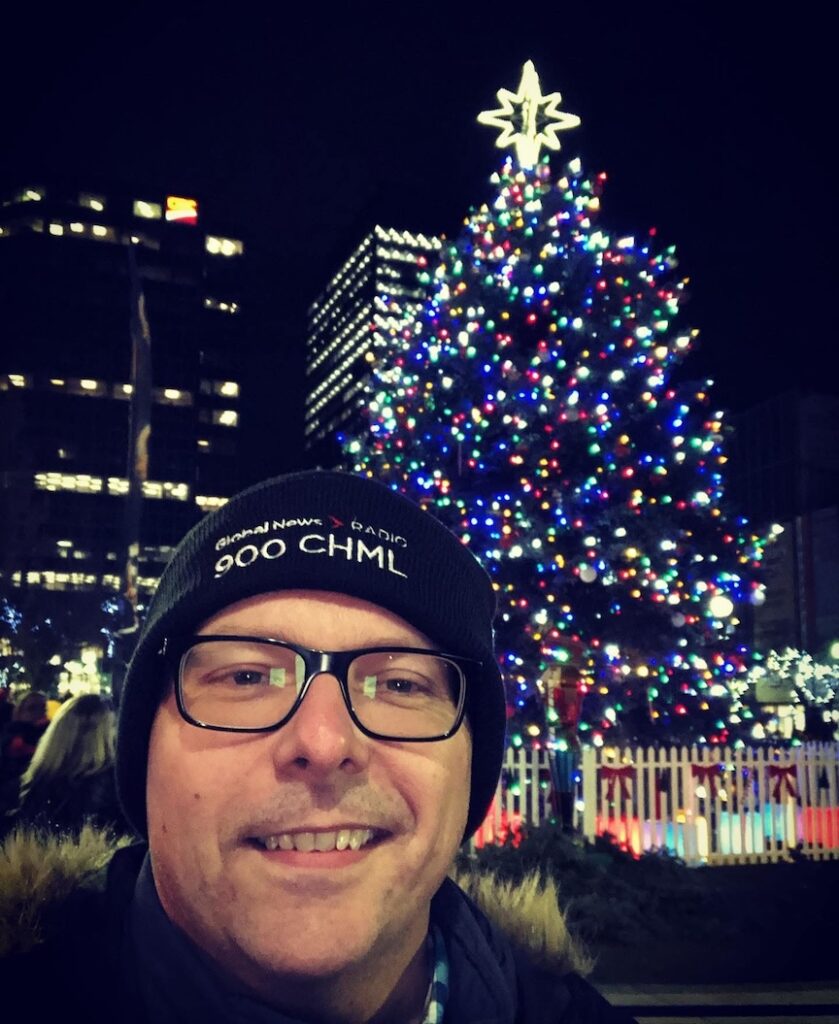
What's your ideal way to spend the lazy day?
If I'm not watching sports, I'm probably doing something on my phone. So whether it's just kind of tooling around on social media to see what's going on and what people are saying and how they're reacting to things, or watching some YouTube stuff, or catching up on a podcast. The phone is usually in my hand, and I'm kind of figuring out what's going on in our world and in our community. Roy Green taught me that the porch light is always on. You're always thinking of the next story, or how can I make this into either a story or podcast.
What is Hamilton's best kept secret?
I don't know if the waterfalls kind of fits in this category anymore, because I think many people, especially during the pandemic, were coming here. There’s the food scene, although I'm not sure that's a secret anymore, too. Because whether it's HAMBRGR or The Mule or The French, all these great restaurants on King William Street alone. There’s so many others in this city that have, I think, made their mark in terms of making these awesome creations.
Do you have a favourite meal in the city?
My favourite restaurant is La Spaghett. Its freshly made pasta can't be beat. So I don't know if I have a favourite dish there, because every time I go there, I want to try something new. I haven't gone through the whole menu yet.
Hamilton needs more of …?
Hamilton needs more of media people, media jobs. Hamilton needs more of a spotlight on the national and international stage. I think we've earned the right to step into that spotlight, not necessarily with what we make, but the people that we are and the things that we do.
Hamilton needs less…?
One-way streets. Two way would be much better for both sides of the street, to make sure pedestrians are safe and cyclists can get to where they need to go. And to have that kind of two-way atmosphere where businesses are able to thrive a little bit more. There's now these through-ways where you're kind of just getting from point A to point B, and not really paying attention to what's along the way. I think if there was two way, especially on Main and King, that you would get a lot more, ‘Hey, let's just pull into this store here, this shop or this restaurant,’ I think that would just add to the vibrancy of what we kind of already have.













